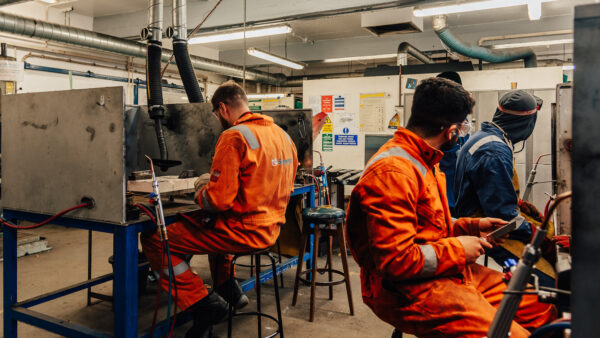Governments urged to incentivise employers to invest in healthcare and skills training to help retain older workers
A global study by the British Standards Institution (BSI) has found that employee health and employer flexibility are key to delivering the multigenerational workforce of the future.
Evolving Together: Flourishing in the age-diverse workforce considers how today’s business leaders think businesses and policymakers can respond to demographic changes as greater numbers work beyond the age of 65.
However, the study found just 15% of UK construction workers intend to keep working beyond retirement age, compared with 29% for all sectors. Three fifths of UK construction workers expect to retire between 61 and 65.
The findings show 45% of construction leaders globally want better research and data collection around workforce demographics to inform organisations on how to manage the workforce.
In addition, 51% of construction business leaders surveyed globally want their government to introduce tax incentives that encourage businesses to invest in employee health schemes, as well as retraining and reskilling employees as they get older.
According to the survey, 53% of construction business leaders think offering flexibility regarding when, where or how much employees work would be an important step to support the ageing workforce.
Physical and mental health
Kate Field, global head human and social sustainability at BSI, said: “The opportunity for businesses and governments to prioritise their people by supporting improved physical health and psychological and mental wellbeing, is unmistakable. So too is the desire for greater flexibility; for work to fit into our lives rather than it being the other way round.
“In response to the pandemic, many organisations introduced flexible policies. Now is the opportunity to build upon them and make them work for the long term.”
Overall, responses were similar across markets and sectors, indicating that despite social and cultural differences workers globally are largely focused on health and mental wellbeing.
Notably, women ranked creating an inclusive culture, including training staff around diversity and inclusion, a top five priority (5/14), whereas men did not (9/14).
Overall, the built environment sector prioritised a public education campaign to break down stereotypes (6/13).
Key priorities
The report identifies six insights for individuals, organisations and society to prioritise:
- Plan ahead: Think now about how to respond to the age-diverse workforce.
- Rethink work: Open the conversation around how flexibility can be enabled for the long term.
- Support health and wellbeing: Support workers to manage their health.
- Train, retrain and refresh: Prioritise opportunities to upskill, returnships or the chance to shift roles.
- Make work worthwhile: Ensure people feel their contribution is appreciated.
- Enable an inclusive culture: Employers can partner with employees to embed a supportive culture.
Field added: “The research paints a picture that change is a critical yet exciting opportunity, making clear the need for collaboration across society to shape a future of work that meets all our needs, whatever age or stage we are at.”
Download the full report here.









